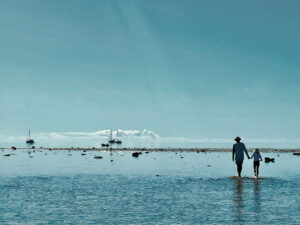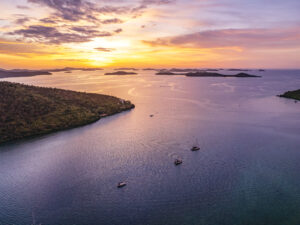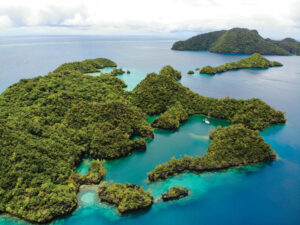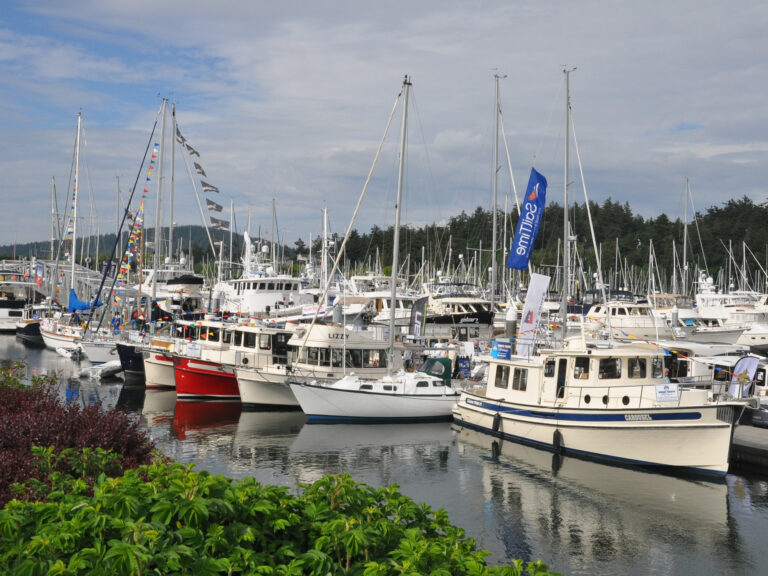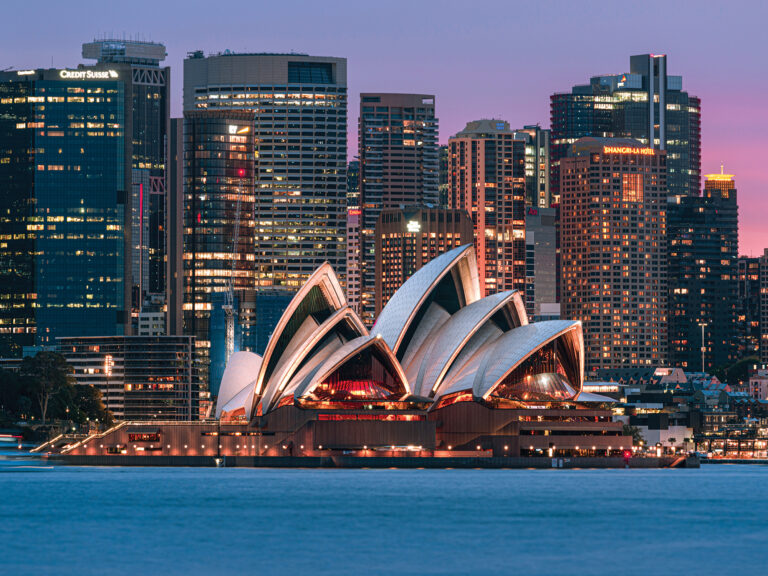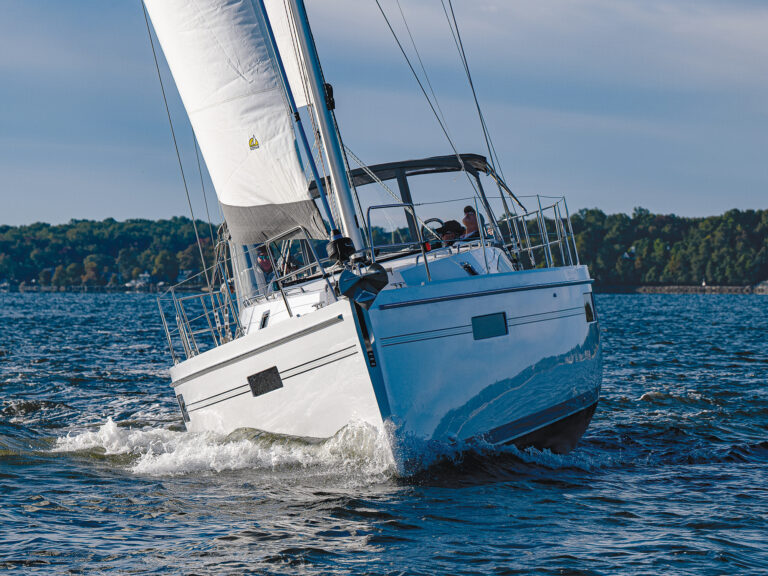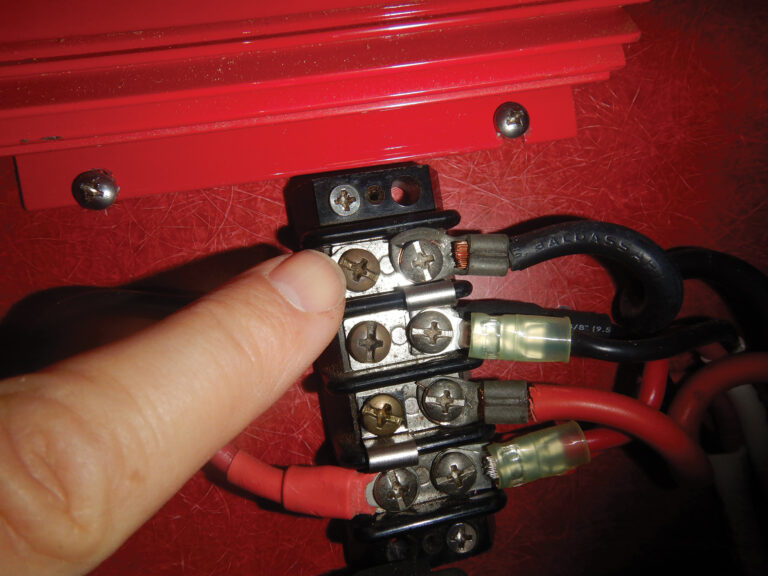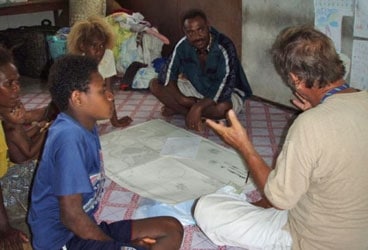
Father Nathaniel prayed for our safe passage to the Swallow Islands, and invited Diana and Alvah into his home so he could share his local knowledge of the area.
Thanksgiving is my favorite day of the year. It celebrates, in a non-commercial way, the bounty our nation enjoys and commemorates a period of peace and co-operation between the Pilgrim settlers and the first Native Americans they encountered. I try to extend this concept of thankfulness beyond that day and our borders by recalling the many native people I have encountered in my decades of voyaging under sail and the same spirit of co-operation and concern that they’ve have shown me.
Two years ago, Diana and I sailed from Vanuatu to the Santa Cruz Group of the Solomon Islands. There we met Father Nathaniel, an Anglican priest who teaches and preaches at a small and very rundown vocational school across the bay from the dilapidated regional capital, Lata. He takes his duties of educating and spiritually guiding the young people in his charge very seriously.
He extended that sense of responsibility to us when he heard we were setting sail for the Swallow Islands, for the people there have a reputation for being somewhat dangerous. He paddled out with his entire family to bless our boat and led his family in a sincere prayer for our safety. He then suggested we pull out our charts so that he could mark dangers of another kind, such as reefs and shoals, for he has intimate knowledge of the area.
When we visited his unpainted, unfurnished cinderblock house and the open thatched-roofed church, we were shocked by how little he had with which to support his wife and family and to tend to his congregation. And yet somehow, even though living in a state that we’d consider impoverished, he seemed accepting and grateful for these small gifts in his life.
He no doubt had heard through the coconut telegraph that we’d promised to mail gifts of watches and reading glasses back to a few villagers whom we’d befriended, yet he was reluctant to ask for anything himself. Finally, he asked for two things: a thurible, which is an incense burner central to Anglican ceremony and apparently very important to him, and the book by David Lewis, M.D., titled We the Navigators, which includes a section regarding Father Nathaniel’s uncle, Basil Tavake, one of the traditional star-path navigators. While the watches and glasses were easy to find, we only found the thurible and the book recently, and Diana mailed them out to Father Nathaniel this week.
When my book, North To The Night first came out, one critic complained that I was too often critical of “modern civilization”. In fact, I didn’t include a single criticism of modern civilization, but I did write often of my admiration of many aspects of traditional native cultures. I don’t see praise of one as being an indictment of the other.
Nevertheless, despite our political, technological and material success, I still feel that there’s much we can learn-or perhaps relearn-from these people, for it is a simple rule of navigation that to know where you’re going, you must first know where you’ve been.

